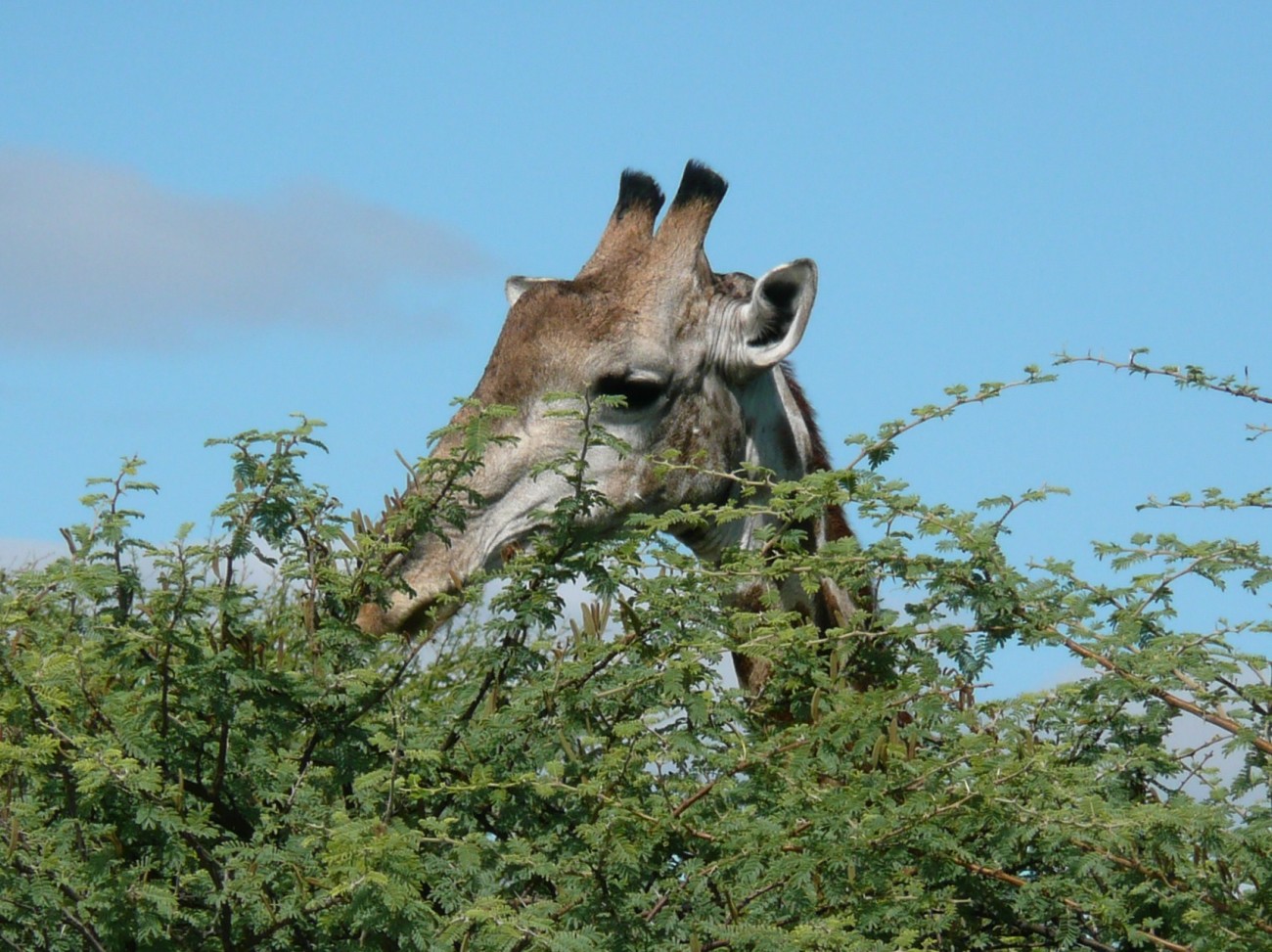
by Loti | Apr 30, 2013 | Africa, Animals
Africa. Not only is the giraffe the tallest mammal alive, it is the 2nd largest land animal (after the elephant) and the largest ruminant. The largest what? What in the world is a ruminant (other than a really cool word)? Well, ruminates soften their food in their first stomach (they have 4 stomachs one of which is called the rumen), regurgitate it (a polite way of saying they throw it up) and then chew it again to further break it down so they can digest it. Other ruminates include cattle, sheep, goats, camels, deer and antelopes. All have split hooves and eat by grazing. Giraffes just do it from a much higher vantage point since they can be 20 feet tall. Ruminates are able to digest grasses and other vegetation that animals with only one stomach can not digest. They literally chew the cud or chew the regurgitated mass. So while chewing the cud has come to mean pondering or meditating, it also means rechewing your food, if you just happen to be a ruminant. ...
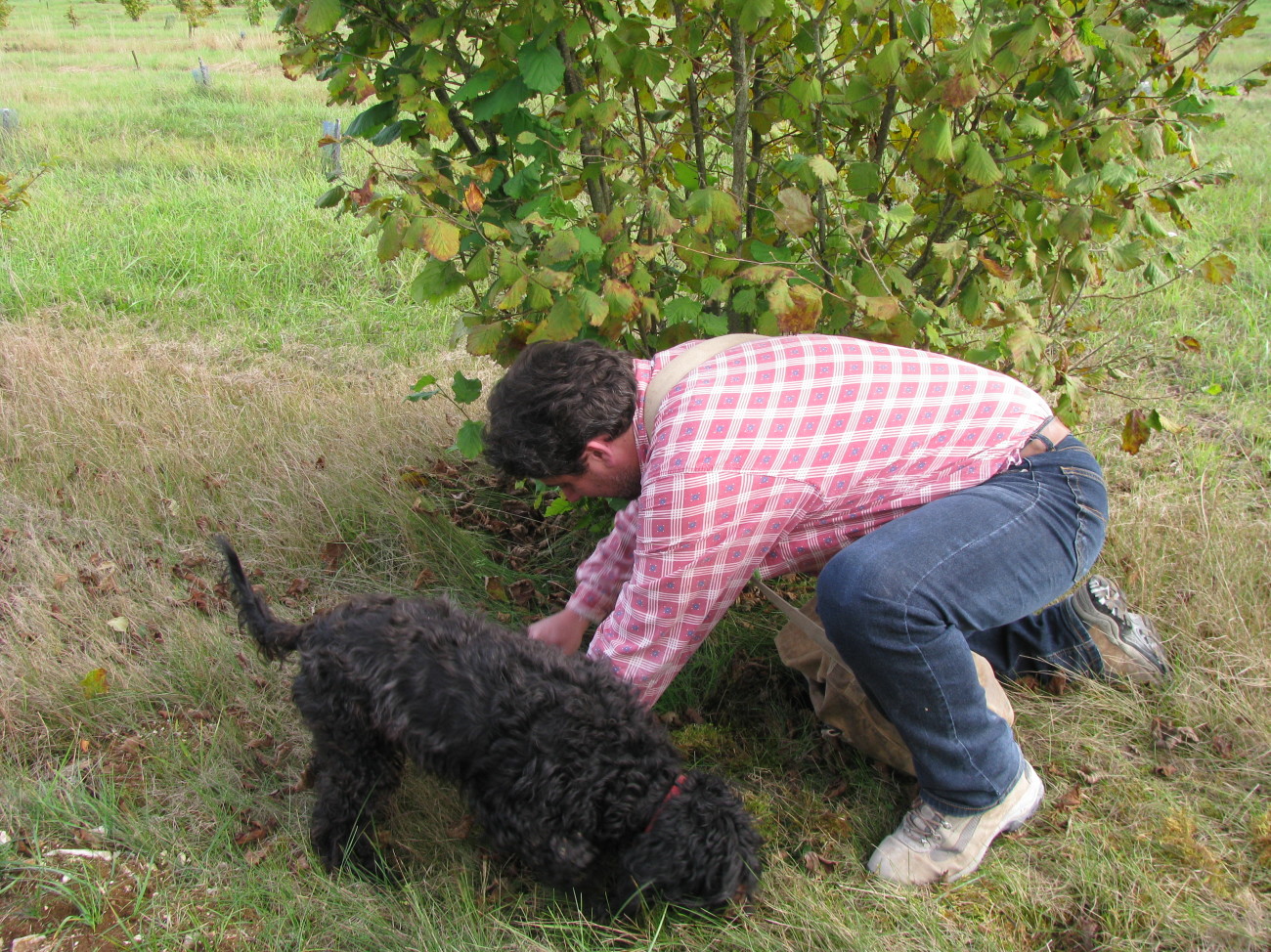
by Loti | Apr 26, 2013 | Animals, Food, France
France. Given a choice of touring Dijon, France on our barge trip or going truffle hunting, the choice was obvious (at least to me). A truffle hunt with a Lagotto, a dog bred to hunt truffles, was in order. There are hundreds of truffle types, but we were going to hunt for black ones. So what exactly is a truffle (and I am not talking about the chocolate kind although, in my opinion, they taste better)? Truffles are mushrooms growing underground, often around the base of a tree. They are usually harvested by pigs and dogs who can smell the fragrant fungi. Pigs are used less today (they are actually outlawed in Italy) as they damage the truffle habitat while digging and then they eat the truffle. Dogs don’t seem to really like the truffle which works much better. Known as one of the most expensive foods on the planet (currently selling for over $500 a pound which is still less than bird nest soup), I got to taste one that had just been dug up by our truffle dog shown in the photo. It tasted like dirt and dog slobber so I don’t really get the big deal. And on the cooking show “Chopped”, any chef using truffle oil almost always loses. Come to find out, truffle oil rarely contains truffles but is olive oil with a synthetic chemical made from formaldehyde. Yum. While truffles are mainly grown in Italy and France, we are starting to see them cultivated in the US in Oregon and even Tenn. So if you get a chance to taste one or watch...
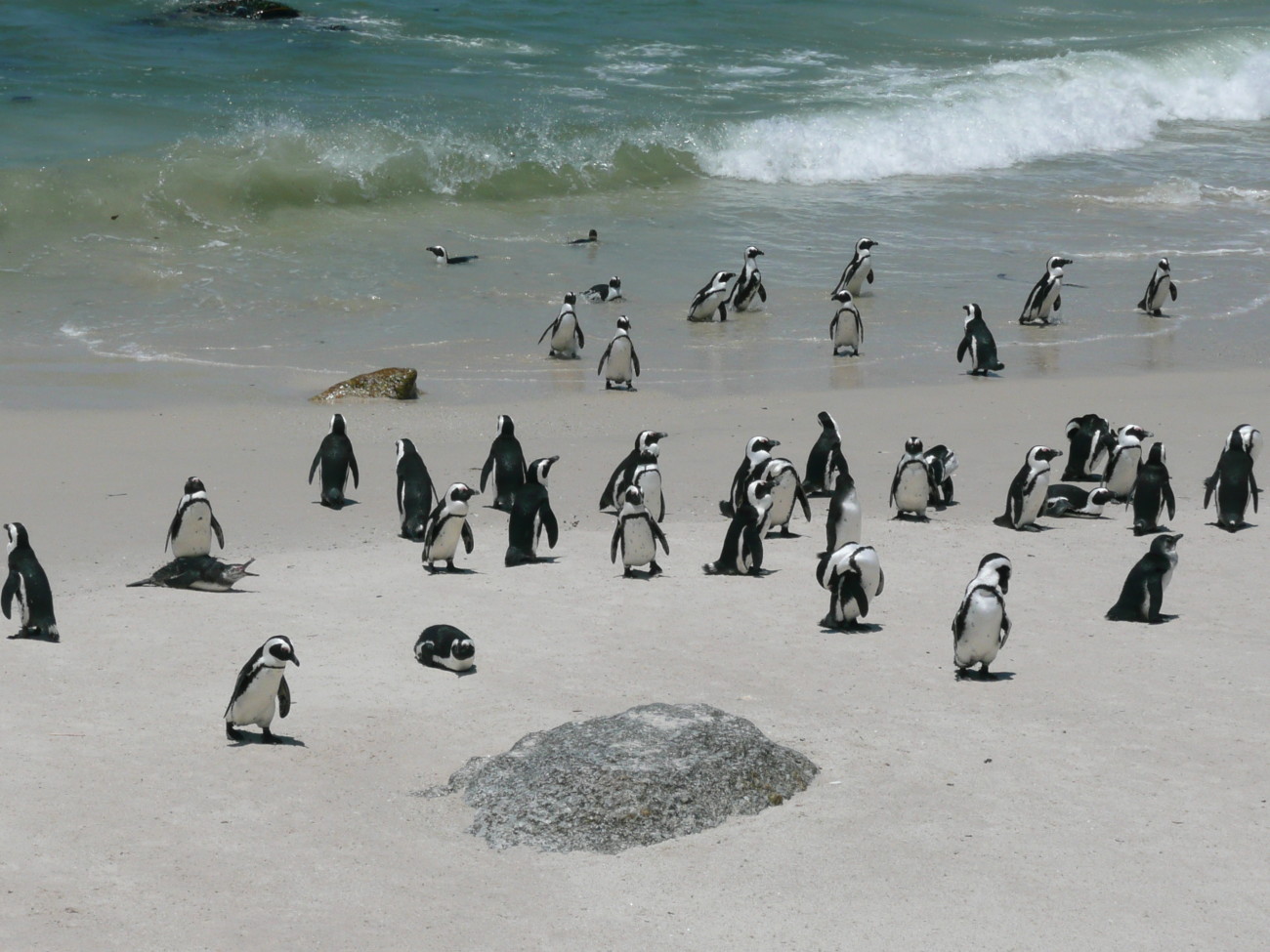
by Loti | Apr 25, 2013 | Africa, Animals, Endangered Species
Africa. I never expected to see penguins frolicking in the warm surf, in Africa of all places. But there they were at the beach at The Cape of Good Hope, the Southern tip of Africa. The African Penguin, also known as the Black-Footed Penguin or the Jackass Penguin because of the donkey like bray they make, are endangered. Only about 55,000 remain, down from 4 million at the turn of the century. And without a halt in their decline, they are expected to be extinct within 10 years. But they could be extinct now if not for the largest animal rescue ever in the world back in 2000. The MVP Treasure, an iron ore tanker, sank off the African coast and released 1300 tons of fuel oil. Almost half of the entire African penguin population was at risk of dying from oil exposure. Volunteers came from all over the world, over 12,000 people, to help individually wash each bird. 40,000 birds were affected with over 90% saved. Read about the rescue in “The Great Penguin Rescue” or watch a Ted talk (www.ted.com/talks/dyan_denapoli) both by Dyan deNapoli, one of the rescuers. The message she delivers is inspiring. Each of us can make a difference, whether one penguin at a time or one moment at a time. What difference can I make today? ...
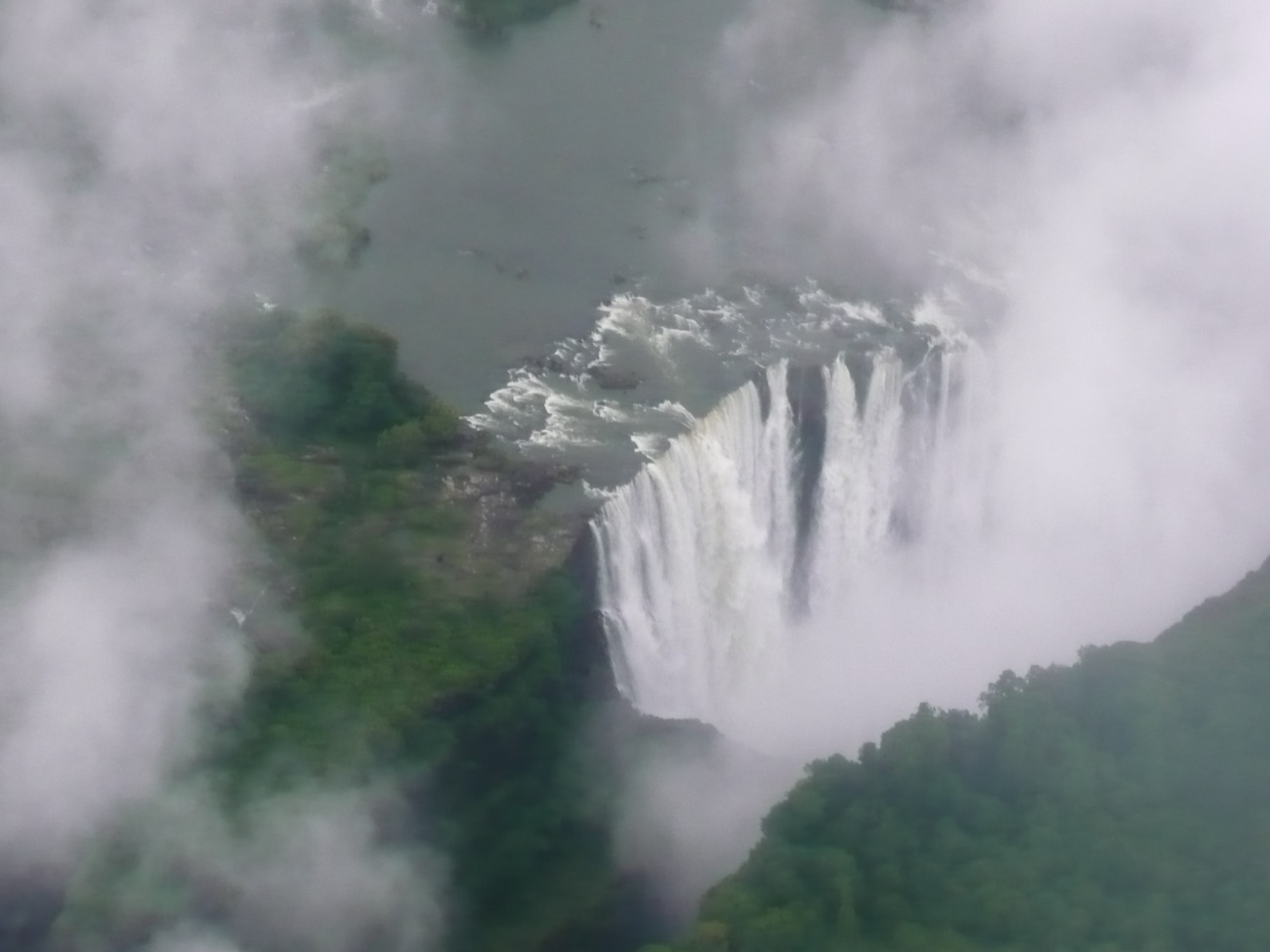
by Loti | Apr 23, 2013 | Africa, Conquering Fear, Landscapes, Wonder of the World, World heritage Sites
Africa. What an awe inspiring sight! Hovering above Victoria Falls in a helicopter (this was definitely way outside my comfort zone), we could see the mist surrounding the falls. And walking the trails around the falls, you hear the thunder of the water, feel the damp spray and try to dodge the monkeys. Just amazing. Called the Smoke that Thunders by the locals, the falls lie on the border of Zimbabwe and Zambia in Southern Africa. Discovered by David Livingstone (the Scottish missionary and physician who was greeted with the famous phrase, “Dr. Livingstone, I presume”), they are named after Queen Victoria of England. Over 1 mile wide and 350 feet high, they are the one of the largest waterfalls on the planet and are designated a World Heritage site. They are also included on the list of the Seven Natural Wonders of the World published by CNN. Which I found fascinating, because on doing some research, there are multiple lists of the Seven Wonders of the World. And each is different. There is the Ancient Seven Wonders, the Natural, the Medieval, the New Seven Wonders, the Modern, the Industrial, the Underwater and even the Animal Seven Wonders (which includes butterflies and magpies). So much to do and see and...
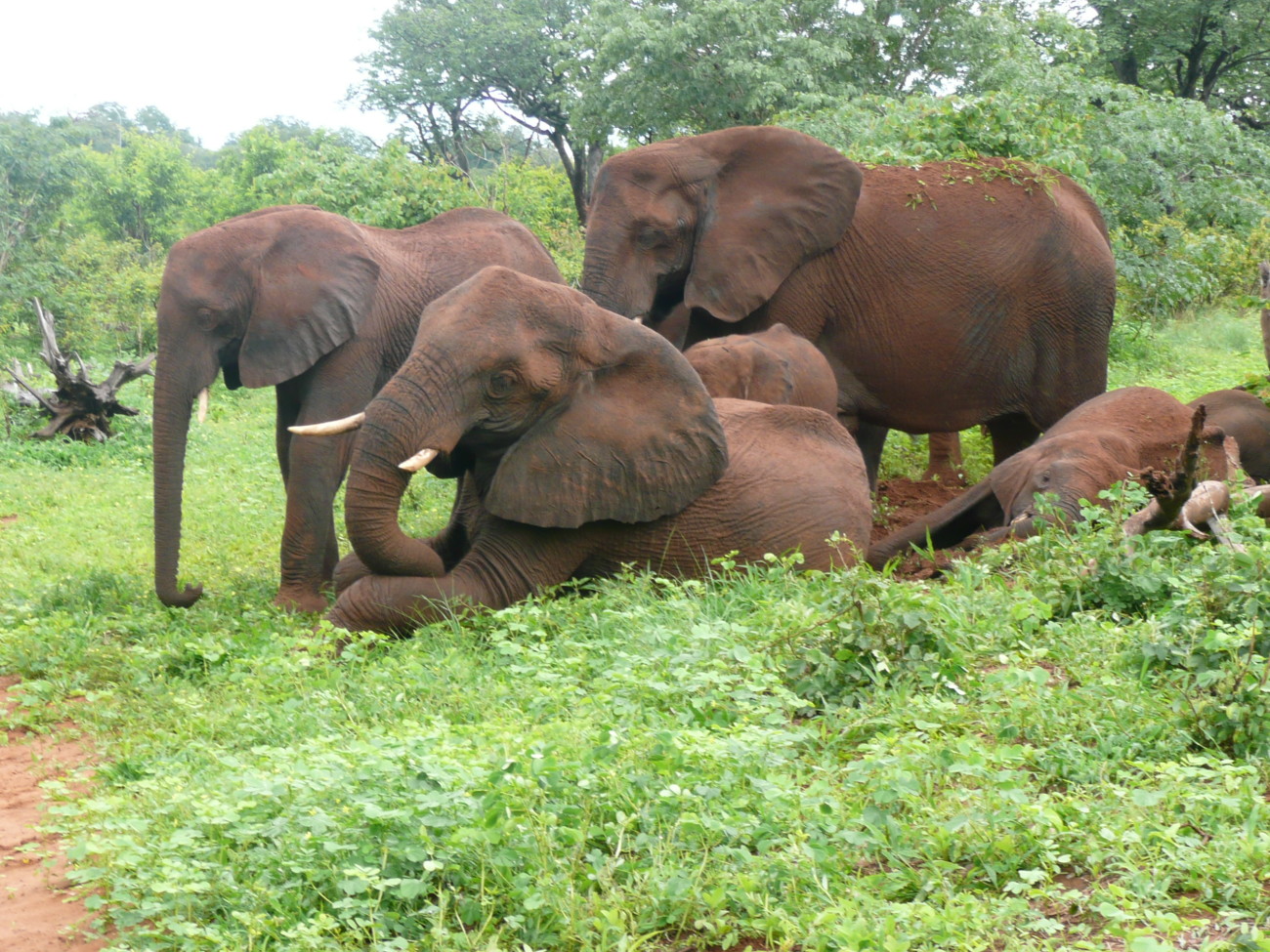
by Loti | Apr 19, 2013 | Africa, Animals
Africa. These beautiful elephants live in Botswana, a wonderful place I visited several years ago. But in Chad which is in Central Africa, just last month, 89 elephants were killed for their ivory. Thirty three were pregnant females and 15 were calves shot along side their Mom’s. How very sad since there are only about 600 elephants left in Chad in the wild, down from 40,000 in the 80’s. And it occurred just as the CITES convention in Bangkok was winding up. Remember the resolution to ban the sale of domestic ivory in Thailand which passed at the beginning of the convention? Now the resolution needs to be implemented as one step to reduce the use of ivory. So how do we protect our animals and our rangers? In Chad, not only are the elephants being killed, but the park rangers hired to protect them are being murdered. Well, some good news. Eight African nations are sending 1,000 troops to the region to protect the remaining elephants and try and stop the poachers. And a cool small way to help, I learned this morning. I sent an electronic post card to a ranger in Africa thanking him/her for their help and dedication in protecting our animals. Wow, I never thought about helping in such an amazing way. Just saying thank you to someone I have never met. You can do it thru the World Wildlife Fund website. Baby steps, but steps! ...






